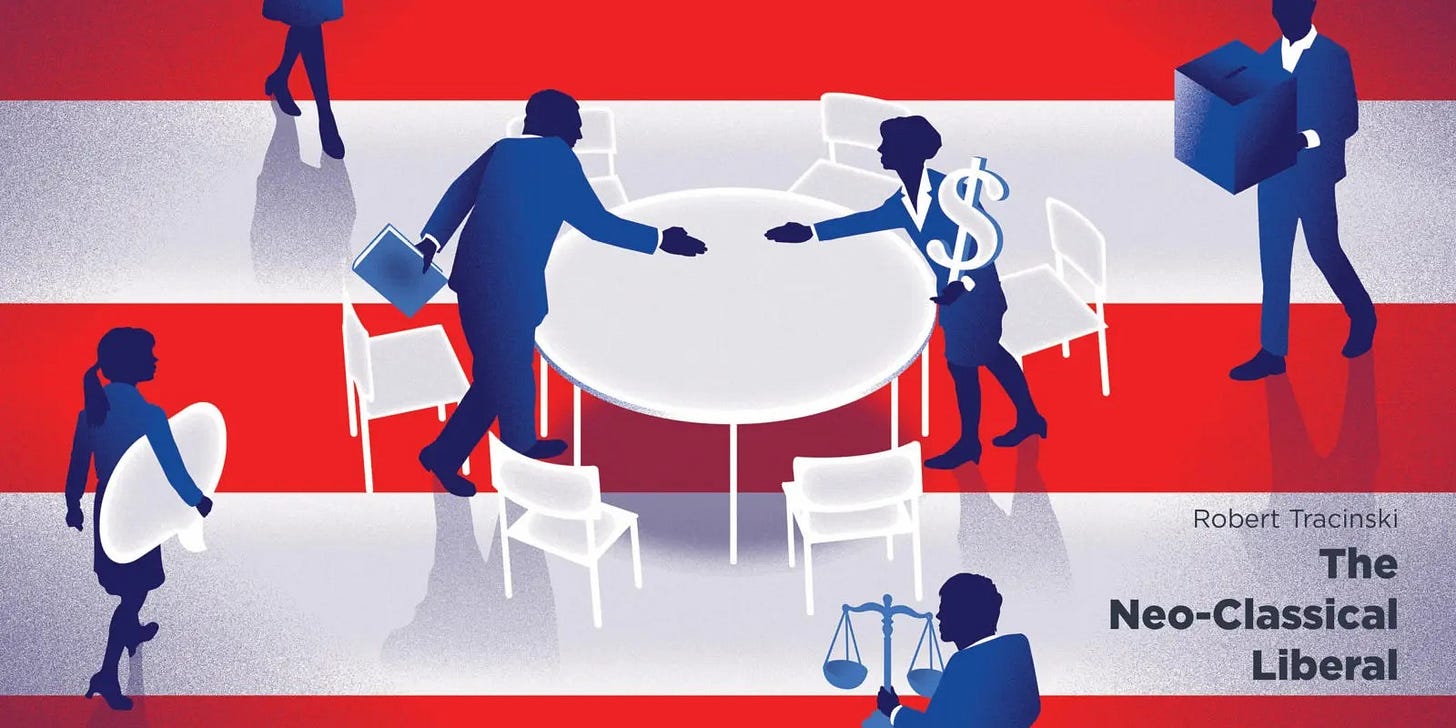The Fake Scientific Consensus on Climate Change
The global warming orthodoxy is the result of groupthink enforced by cancel culture, not independent thinkers coming to the same conclusion
On Earth Day this year, a man set himself on fire on the steps of the U.S. Supreme Court as a protest against global warming. Wynn Alan Bruce was partly inspired by Buddhist monks who used self-immolation to protest the Vietnam War. But his cause was not religious. His aim was to “bring attention to the climate crisis.”
Leave aside the horrific implications of self-immolation being heralded as “a deeply fearless act of compassion”—an example we all hope will not catch on. What struck me is that it is an odd kind of zealotry that embraces the methods of extreme religious fanaticism while quoting from Carl Sagan and promoting a complex scientific hypothesis.
Catastrophic man-made global warming is certainly a curious scientific claim. The issue is complicated and has multiple parts: Is our atmosphere really warming? How much of the change is caused by man? Is it really catastrophic? Are there any solutions, and what are their tradeoffs?
The answers require the examination of evidence that is often confusing and indirect. How much can we really tell about the past climate, for example, by looking at tree rings and other “proxies”? That the answers to all of these questions would perfectly align with one political solution is implausible, to say the least. But universal agreement is exactly what is claimed for global warming. That’s why we now must call it the “climate crisis,” because any agreement short of calling it a crisis is insufficient.
Yet for all the zealotry, this issue is animated by a bland and bureaucratic word: “consensus.” The case for political action is that there is a single, unified scientific consensus that makes the threat and its political implications a certainty—certain enough to die for.
What Is a Consensus?
But is this really true? Is such a consensus really possible? What is a consensus, anyway, and why should we take it seriously in the first place?
The consensus on global warming was originally claimed to be an agreement among 97% of scientists. But that calculation was dubious and assumed that pretty much every scientist who had ever written a paper relating to climate was an adherent of the consensus, whether the paper said so or not. Now, according to the latest claims, the consensus is up to 100%: Complete, unanimous agreement of a kind you can’t get even for whether men really landed on the moon.
Clearly, this is implausible. It raises some questions about how this supposed consensus was formed and about the difference between consensus and groupthink.
Obviously, mere group agreement carries no special intellectual authority. There is a long list of ideas that at one point everyone agreed on that have since turned out to be false—from the earth being at the center of the solar system to the benefits of lobotomies. Key scientific breakthroughs such as plate tectonics had to overcome fierce resistance from the scientific consensus of their day.
Eugene Parker recalls the reaction when he theorized about the solar wind—the constant flow of particles blasted off the surface of the sun that is now recognized as a key concept in astrophysics: “The first reviewer on the paper said, ‘Well I would suggest that Parker go to the library and read up on the subject before he tries to write a paper about it, because this is utter nonsense.’” One of the key researchers behind the new mRNA vaccines once had to accept a demotion and a pay cut because her university thought mRNA was a dead end.
If Everyone Agrees...
And yet, for nonscientists who don’t have the expertise or time to weigh the issue fully for themselves, a consensus usually provides a starting point. It lends a prima facie plausibility to the established view. If so many scientists spontaneously came to agreement on this conclusion, then maybe it’s true. At the very least, it’s the best information we have.
Yet the very thing that makes a consensus convincing—the idea that independent thinkers have all come to this conclusion separately—tells us about the conditions under which a consensus can be taken seriously. It is the spontaneity and particularly the independence of the conclusions that lend them weight. When I talk of “independence” I don’t mean that researchers are working in total isolation, unaware of each other’s ideas. I mean that they are each free to follow their own lines of inquiry and entertain varying conclusions. A consensus is a spontaneous agreement among people who are free to disagree.
That raises a question to which I think we all immediately know the answer. Are scientists free to disagree on this issue? Is the sheer unanimity on this issue a result of the inarguable truth of the “consensus” view—or does the lack of disagreement simply show that everyone is afraid to contradict the accepted version?
There is a lot of evidence for the latter interpretation.
The Blacklist
Consider the case of an Italian scientific conference last year that had to be canceled, not because of the pandemic, but because participants withdrew en masse after an Italian newspaper whipped up a crusade over one of the papers to be presented—a paper that expressed skepticism about the size of the human role in global warming. Rumors swirled that one of its authors was a “denier,” and everyone stampeded toward the exits. (See another report on an academic conference that got a similar reception.) This is “cancel culture” in climate science.
Or consider a recent book by Obama-administration official Steve Koonin—former undersecretary of science for the Department of Energy—which questioned some of the conclusions of the established view. In a letter to Scientific American signed by a dozen other scientists, he was promptly denounced as a “crank” and a “disinformation peddler,” with plenty of insinuations that he must be bought and paid for by Big Oil.
I think we’re starting to get an idea of how we got that “consensus.”
You may have noticed that two of the links above are from the blog of Judith Curry, a former chair of the School of Earth and Atmospheric Sciences at the Georgia Institute of Technology. She was forced out of her position and eventually out of academia altogether after being added to a blacklist of “climate misinformers” with the open goal to “make her [and the others on the list] unhireable in academia.”
Then there are the scientists who created a machine-learning algorithm intended to scrub the internet of “climate misinformation,” which is defined to include skepticism expressed about any of a range of hypotheses that are part of the supposed consensus. Someday soon, you may no longer be able to discover that anyone ever expressed a contrary view on this question.
So what we see on global warming is the construction of a false consensus—false because it is not a spontaneous agreement among independent thinkers but rather groupthink or even an orthodoxy enforced by ostracism and blacklisting.
The IQ of a Committee
The lone individual defying authority, the man more right than his neighbors who constitutes a majority of one, is a genuine and justly celebrated phenomenon. Most important new ideas start with one person who everybody else thinks is crazy. Meanwhile, there’s an old joke that the functional IQ of a committee is the lowest IQ among its members, divided by the number of members.
Yet there is also evidence that people can reason better in groups than purely alone. We benefit from interaction with those who challenge our assumptions, check our biases, add new information and see things from a different perspective. But for this to improve our thinking, the group must be organized under the right conditions. Individuals working alone and meeting to share their results, for example, achieve better results than groups that brainstorm together. The most important ingredient is “debate and criticism,” which ensures a thorough and continual critical review of any new idea. Yet that is precisely what the global warming orthodoxy has spent decades trying to stamp out whenever it arises.
In this respect, a 97% consensus should be viewed with as much distrust as a strongman leader’s 97% reelection result. It should be taken less seriously precisely because it is too high, indicating that nobody was allowed to express a different view.
The creation of this enforced orthodoxy is what leads a fanatic looking for purpose in life to kill himself over what ought to be a technical scientific discussion. It could lead us to crash our economy—or, like the Germans, become hopelessly dependent on energy from a dictatorship—because we can’t reconsider the problem or contemplate other solutions to it.
We are certainly killing our ability to think and talk rationally about such a momentous issue.






